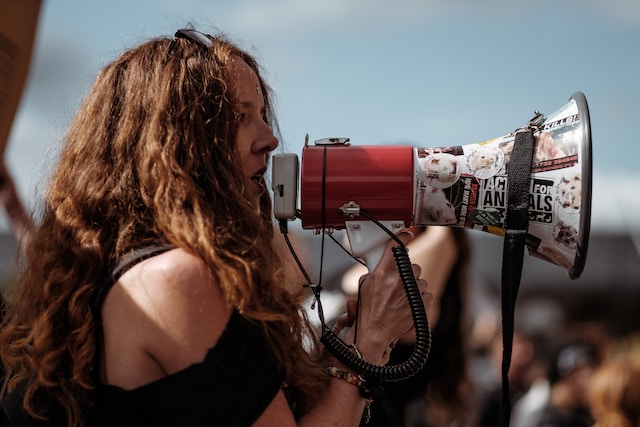The Dog That Changed Everything: How Bolt Helped a Veteran Reclaim His Life
When David From sat down with Chris Enget, Education Director for Concerned Veterans for America, the conversation quickly turned to someone who’s never far from Chris’s side—his service dog, Bolt.
Chris isn’t shy about the impact Bolt has had on his life. In fact, the two met on a day Chris will never forget—his “alive day,” the anniversary of the day he was injured in Afghanistan. “It wasn’t planned that way,” Chris recalls, “but it felt like fate.” That timing, he says, deepened their connection from day one.
And it’s a connection that runs deep.
Service dogs like Bolt aren’t just loyal companions—they’re trained professionals. Their roots go back more than a century, to World War I, when dogs were first trained to assist soldiers wounded in combat. These days, they help people with all kinds of needs: visual impairments, seizure disorders, PTSD, and more.
For Chris, Bolt is more than a helper—he’s a bridge to everyday life.
“I can be in a crowd, and Bolt will position himself between me and other people,” Chris explains. “It’s like he knows when I need space before I even do.” That kind of support is hard to describe unless you’ve lived it. For veterans struggling to reintegrate into civilian life—especially those dealing with PTSD—service dogs can mean the difference between staying home and engaging with the world.
Chris knows that struggle all too well. “You can be out of uniform, have a job, even have other veterans around you,” he says, “but still feel completely isolated.” That’s where Bolt comes in. The dog’s presence alone provides a sense of security, but his training goes much deeper.
Bolt is attuned to Chris’s anxiety—he can spot the early signs of an oncoming panic attack and step in before it takes over. “He’ll nudge me or lay across my lap,” Chris says. “That physical contact brings me back, helps me get grounded.”
It’s these small, almost invisible moments of intervention that make a massive difference.
But not everyone understands what service dogs like Bolt actually do. That’s one of the reasons Chris is so passionate about education. “There’s a lot of confusion between service dogs and emotional support animals,” he says. “They’re not the same. Service dogs go through rigorous training to perform specific tasks. It’s not just about comfort—it’s about functionality and independence.”
Chris wants more veterans to know these resources exist—and to know it’s okay to reach out for help. He encourages those who are struggling to connect with organizations that train service dogs and to lean on their fellow veterans for guidance and support.
“Sharing our stories is how we help each other heal,” he says.
As the conversation wrapped, one thing was clear: Bolt isn’t just a dog. He’s a lifeline, a loyal teammate, and a quiet force helping Chris reclaim his life.
For veterans like Chris, service dogs represent something powerful—connection, safety, and the ability to step forward into life again. And for those of us listening, it’s a reminder that healing doesn’t always come in big, dramatic moments. Sometimes, it has four legs, a wagging tail, and a heart that just knows.
Check out the episode here: https://youtu.be/LHN5tFJBng0?si=BOBXnQCemhmvS-IL
Author: David From hosts the American Potential podcast. David serves as a Regional Vice President at Americans for Prosperity, a political advocacy and grassroots organization dedicated to advancing policies that expand freedom and opportunity. With extensive experience in advocacy and public policy, David is committed to highlighting stories of individuals and communities breaking barriers and creating positive change across the country.









